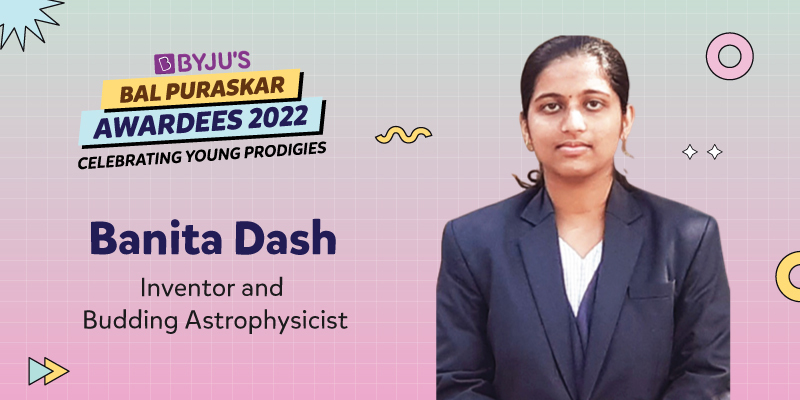
After the lockdown was first announced in 2020, Banita Dash realised that the education of millions of children was going to take a heavy toll. “Many school kids who I knew started to struggle with maintaining a balance between safety and going to school. This made me wonder what I could do to help them overcome this challenge. That’s how I came up with the idea of the automated santising alarm schoolbag,” says the 16-year-old from Anupur, Madhya Pradesh. Her innovation led her to become one of the winners of the Pradhan Mantri Rashtriya Bal Puraskar this year.
The Pradhan Mantri Rashtriya Bal Puraskar is a civilian honour in India. The award has two categories — one being Bal Shakti Puraskar awarded to Indian citizens under the age of 18 for their outstanding achievement in innovation, scholastic accomplishments, social service, arts and culture, bravery, or sports. The other is Bal Kalyan Puraskar, awarded to individuals or organisations that have made outstanding contributions in child development, child protection, or child welfare.
Banita’s bag is equipped with an alarm system that rings at set intervals to remind students to sanitise themselves. Think of it as a variant of smart water bottles that remind its user to drink with an inbuilt alarm that’s set to ring at intervals!
“It’s difficult to explain to younger children the need for regular sanitising of their hands and general cleanliness, especially when they don’t understand the gravity of the situation. And since almost every student owns a school bag, attaching the alarm to it would make it easier to remind them to sanitise regularly,” explained Banita.
She hopes to find a source of funding to mass-produce her invention soon.
This young teen is not only an innovator but a forthcoming astrophysicist too who plans to shoot for the stars. Quite, literally. In August 2021, the class XI student discovered an asteroid in the Milky Way, which was recognised by NASA, the International Astronomical Search Collaboration, and Hardin-Simmons University in the US.
Banita, along with other students of Jawahar Navodaya Vidyalaya, joined the Khagolshala Asteroid Search Campaign (KASC) in January last year as part of her school’s programme. Through the programme, she was trained to use Astrometrica, a software that helps read and analyse data spotted in telescopes.
Using the Panoramic Survey Telescope and Rapid Response System located at Haleakala Observatory, Hawaii, Banita captured images and analysed the data of the asteroid, which was later vetted by NASA. “The day I got an email from NASA confirming that it was an asteroid, is one of the greatest and most important days of my life. I have always wanted to be an aerospace engineer, and this is just the first step in that direction,” she says.
The budding scientist only sees these achievements as stepping stones to a starry future. “I hope to work with ISRO one day. If not that, I am also very interested in communications and would be interested in researching how satellites and communication systems can be improved further,” she adds.
So, what does Banita do apart from tinkering with things and exploring outer space? “I love painting, dancing and reading. I also indulge in making Pattachitra art, which is a traditional form of painting native to Odisha,” she says.
With so many hobbies on her plate, we asked her how she managed her studies. She tells us that she sticks to a strict timetable that balances her studies with her free time for extracurricular activities. “I think of myself as an all-rounder. I believe students need to dedicate time to pursuing hobbies and physical activities equally, just as much as they spend on their studies,” says Banita.
Madhavi is passionate about everything to do with books, art, literature, films, trivia and food. A former journalist, she believes that asking questions makes life interesting.